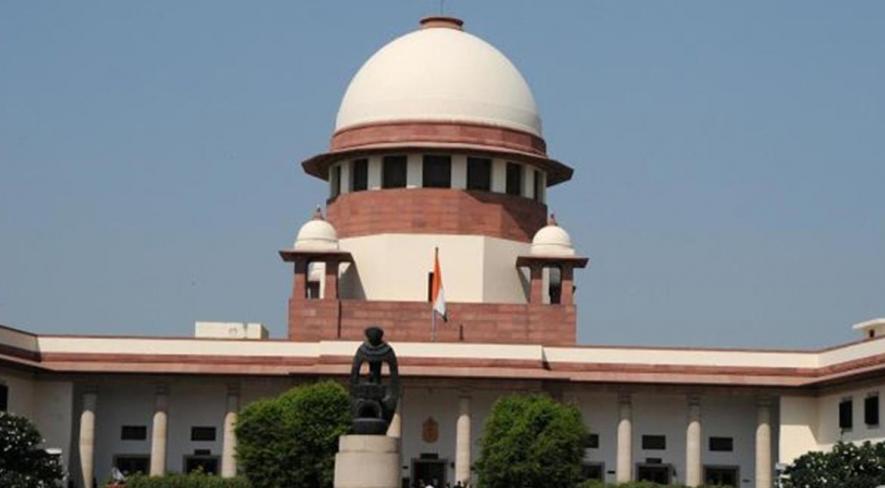Petition in SC Demands NRC in Tripura

What may be the beginning of a domino effect, a petition has been filed in the Supreme Court demanding that the National Register of Citizens be updated in Tripura. The petitioners, Tripura People’s Front, have moved the Supreme Court saying that the situation regarding migration in Tripura is worse than in Assam. They have demanded that July 19, 1948 be made the cut-off date in accordance with Article 6 of the Constitution of India. The petition has named the Union of India, the Ministry of External Affairs, the Registrar General and Census Commissioner of India, the Election Commission of India and the state of Tripura as respondents.
Also Read: The BJP Will Find Itself in a Bind Over the NRC
The petitioners have prayed that the Court should issue directions to the respondents to:
- Set up an effective mechanism to detect illegal immigrants in the state.
- Set up appropriate numbers of Foreigners Tribunals.
- Deport those declared foreigners by an appropriate court.
- Revise the electoral rolls and delete the names of foreigners.
- Update the National Register of Citizens taking July 19, 1948 as the cut-off date.
- Fence or seal the international border with Bangladesh.
- Frame a National Immigration Policy and a National Refugee Policy.
- Take steps to protect indigenous people in line with India’s international commitments.
- Restore the land that had been illegally and forcibly alienated from the tribal people.
- Include Kokborok in Schedule VIII of the Constitution.
Also Read: NRC: Five Missing Documents Bring Unease to the Barak Valley
What appears interesting in this petition is how much the petitioners have relied on previous decisions pertaining to Assam. In particular, the petitioners referred to Assam Public Works v. Union of India through which the Supreme Court initiated the NRC in Assam. What is equally interesting is that some of the relief sought mirrors Assam’s post-partition history. For example, setting up Foreigner’s Tribunals and voter roll revision.
Also Read: Indians Allegedly Being Made Foreigners for Money in Assam’s Morigaon
The prayer for the Union Government to formulate a Refugee Policy and an Immigration Policy also exposes the shortcomings of the State which may have contributed to the situation of ethnic antagonism in the Northeast. In both instances, the Indian State has taken a piece-meal ad-hoc approach. On the one hand, Rohingyas, for all practical purposes, are refugees; yet, the approach of the State has been to treat them as migrants. Due to existing Treaties, Indian citizens can freely visit Bhutan and Nepal with barely any restrictions. The same holds true for Nepalese or Bhutanese citizens in India. However, this is not the case for India’s other neighbours.
Also Read: How Long Do People Need to Live in a Place to Become a Local?
Perhaps, it is due to the success Assamese groups have had vis-a-vis writ petitions on immigration issues. In Sarbananda Sonowal v. Union of India, the Supreme Court held that the ‘Illegal Migrants Determination’ by the Tribunal Act was unconstitutional, as it prescribed a different procedure for Assam as opposed to the other parts of the country. Under the Act, the prosecution had to prove a person was a foreigner, whereas in the rest of the country, a person has to prove that they are a citizen.
Also Read: Why ILP and NRC Demands Have to be Seen Together
What is different from the earlier petitions and agitations is using the indigenous tag in Court. At present, the international community recognises the rights of indigenous people. The definitions of indigenous people have variations from how the International Labour Organisation and the United Nations define the phrase. However, the petitioners’ case appears to rely on the hill people’s indigenous status. A similar petition was filed by the Assam Sanmilita Mahasangha, and is pending in the Supreme Court. Here too, the petitioners sought to establish their position as indigenous people.
It is thus evident that using the force of India’s international commitments, both sides in this conflict over land and resources seek to bolster their position. For example, the Durban Declaration to which India is a signatory makes it obligatory for States to protect migrants as well as indigenous people. Being able to maintain a balance between the two in the Northeast is particularly difficult considering the colonial and post-colonial history of the region.
Get the latest reports & analysis with people's perspective on Protests, movements & deep analytical videos, discussions of the current affairs in your Telegram app. Subscribe to NewsClick's Telegram channel & get Real-Time updates on stories, as they get published on our website.






















